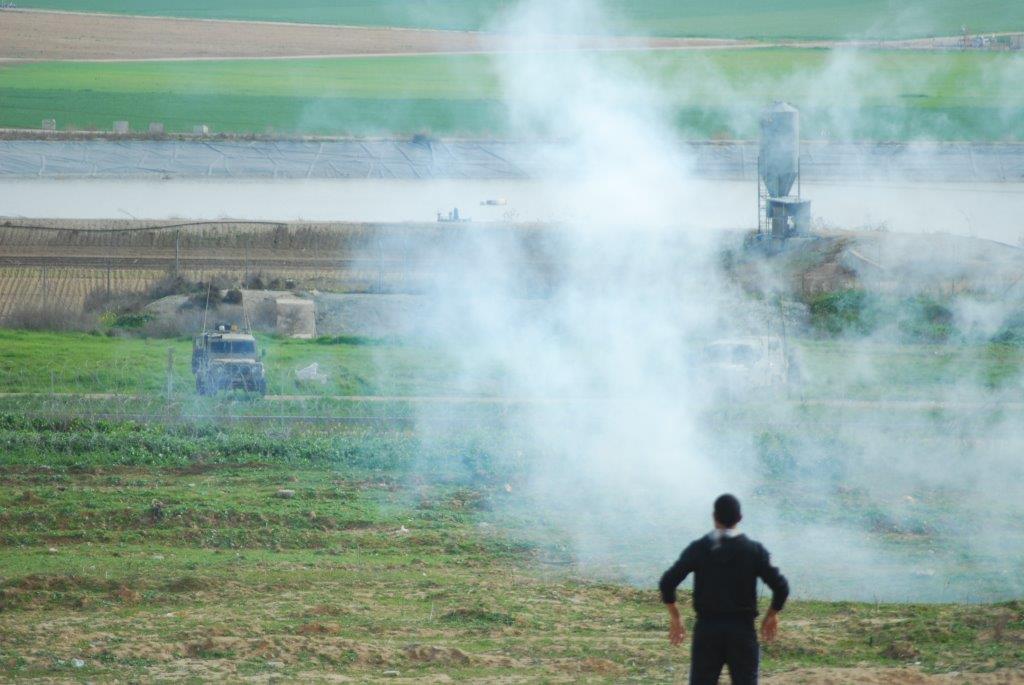Category: Reports
-
Nightraid in Madama village
3rd March 2014| International Solidarity Movement, Nablus Team| Madama, Occupied Palestine Last morning, early on Monday March 3rd, around 100 Israeli soldiers raided the village of Madama, south of Nablus, breaking in houses and detaining 15 people. All of the detainees were released later the same night. The Israeli forces entered the village around 2am and invaded…
-
Bahaa runs for Palestine
4th March 2014 | International Solidarity Movement, Rosa Schiano | Gaza, Occupied Palestine In the shadow of the bleachers of Yarmouk stadium in Gaza City, still damaged by Israeli bombing, 400-meter Olympic runner Bahaa Al Farra trains. Bahaa took part in the London Olympics, along with three other Palestinian athletes, in 2012. “I started racing at the age…
-
Video and photos: Israeli bullets and tear gas target popular resistance in Gaza
25th February 2014 | International Solidarity Movement, Charlie Andreasson | Gaza, Occupied Palestine (Video by Marco Varasio) At al-Shifa hospital Mohammed Helles, age 14, is laying in a coma with an uncertain outcome after he was shot, with what appeared, to be a tear-gas canister in the head and parts of it penetrated his brain. He had…


